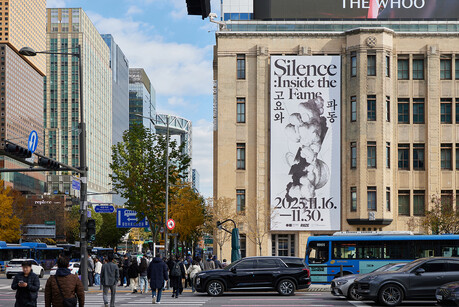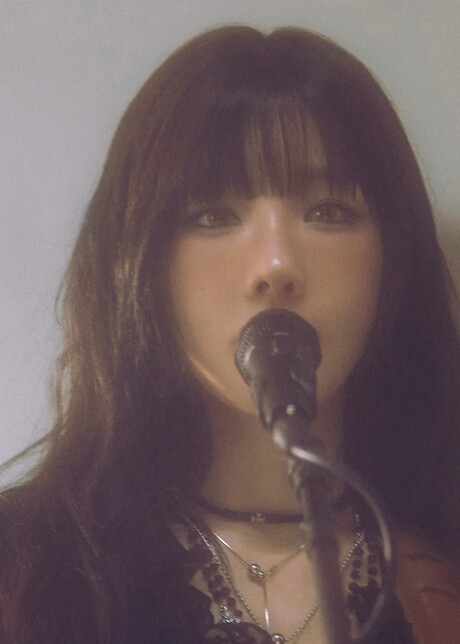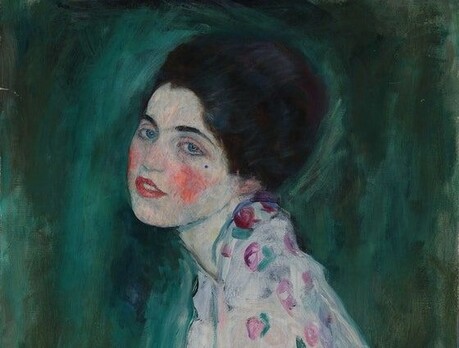Renowned photographer Nan Goldin has unveiled a revolutionary exhibition that challenges traditional photography displays by presenting her work entirely through immersive film installations. "This Will Not End Well," currently showing at Pirelli Hangar Bicocca in Milan until February 15, 2026, repositions the acclaimed artist as a filmmaker rather than a conventional photographer, creating an extraordinarily emotional and captivating experience for visitors.
The exhibition transforms the massive industrial space into a darkened, ethereal environment featuring eight of Goldin's slideshows with runtimes ranging from 14 to 41 minutes. Unlike traditional photography exhibitions with images hung on walls, these films are projected within individually designed structures, combining music, photography, moving images, and narrative voiceovers to tell stories of love, drug addiction, innocence, suicide, and human connection. The ambient sound installation "Bleeding" sets a dreamlike tone that enhances the emotional depth of each piece.
Goldin, now 72, has always considered film her primary medium despite her fame as a photographer. "I never cared about photography too much – whereas film has been my number one medium all my life," she explains, citing Antonioni's cult 1960s film "Blow-Up" as her inspiration for picking up a camera at age 16. Many of the films feature original music by British composer Mica Levi, known for soundtracks to "Under the Skin" and "The Zone of Interest," creating what appears to be the ultimate way to experience photography in an age of shortened attention spans.
The exhibition features both iconic older works and newer pieces exploring diverse themes with Goldin's signature candor. "The Ballad of Sexual Dependency" (1981-2022), her seminal series capturing friends and lovers across Provincetown, New York, London, and Berlin in the 1970s and 80s, appears alongside "The Other Side" (1992-2021), a vibrant portrait of her transgender friends from Boston. These works established Goldin's reputation for startling depictions of emotion, tenderness, and violence, inspiring photographers like Ryan McGinley, Corinne Day, and Ethan James Green.
At the exhibition's press conference, Goldin unveiled an additional surprise work titled "Gaza," a silent film layering social media videos of the Palestinian city before and during wartime devastation. "The last two years of my life, I've been watching this and not being able to stop it," Goldin states. "That makes people sick. I just want to say, don't look away. This should never have happened." This piece continues her activist work, which gained prominence in 2017 when she began protesting the Sackler family following her own struggle with OxyContin addiction.
Several works in the exhibition address drug addiction, creating challenging viewing experiences. "Memory Lost" (2019-2021), which Goldin considers her most important piece since "The Ballad of Sexual Dependency," serves as a dark meditation on addiction, withdrawal, and memory loss. The work features blurred landscapes and self-portraits of Goldin recovering at Priory Hospital in London, accompanied by a foreboding voiceover describing drug use's appeal: "[It] gives me a sense of connection, sense of control, sense of power, soothes the pain, relieves the stress, makes me feel less isolated, makes me feel more excited, less bored with life."
The companion piece "Sirens" (2019-2020) presents a video montage of women in various states of ecstasy, referencing drug-induced euphoria through footage from films by Visconti, Fellini, Andy Warhol, and others. These works reflect Goldin's belief in documentation as survival, as she has stated: "When I started taking pictures, I realized that it was a way to make a real record of what I had actually seen and done. It came from a very deep place, this need to record. It was all about keeping myself alive, keeping myself sane, and grounded."
Goldin explores themes of innocence through two poignant slideshows focusing on children and animals. "Fire Leap" (2010-2022) captures the world of children, with Goldin noting that "Children are born knowing everything and as they become socialized, they forget it." "You Never Did Anything Wrong" (2024) examines animal innocence through an ancient myth that solar eclipses occur when animals steal the sun. The title comes from a pet's gravestone, and when the cats, dogs, and horses lock eyes with Goldin's camera, she appears to see into their souls.
Mythology features prominently in "Stendhal Syndrome" (2024), based on myths from Ovid's "Metamorphosis" and the experience of viewing art in museums, and "Sisters, Saints, Sibyls" (2004-2022), a deeply personal film about Goldin's sister Barbara's suicide at age 18. Goldin reimagines Barbara as a Christian martyr, with this work serving as key to understanding both Goldin's personal story and artistic development. Her parents' repression of Barbara's spirit led to tragedy, while Goldin promises never to look away from darkness, finding beauty in bleak times and power in witnessing.
Goldin's photography philosophy centers on radical empathy and human connection. "For me, it's not a detachment to take a picture," she explains. "It's a way of touching somebody – it's a caress." She describes her approach as attempting "to feel what another person is feeling," stating, "There's a glass wall between people, and I want to break it." This traveling European exhibition will next appear at the Grand Palais in Paris in March 2026, continuing to showcase Goldin's innovative approach to displaying photographic work through immersive, emotionally demanding experiences that linger in viewers' minds long after leaving the gallery.






























